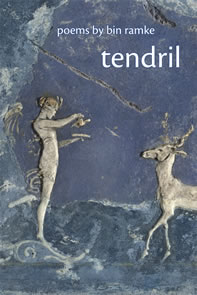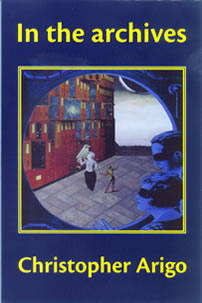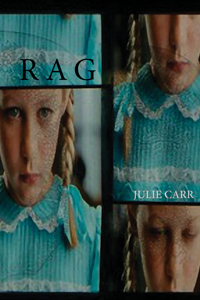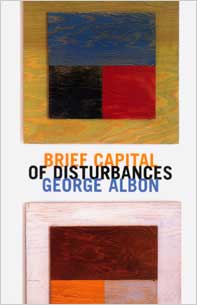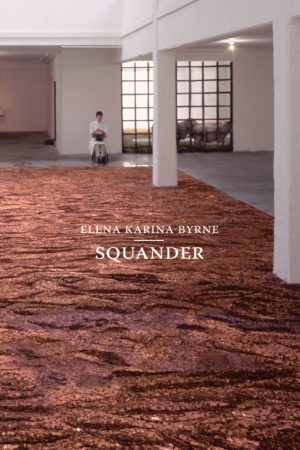Description
In his ninth poetry collection, Mr. Ramke exposes the myriad tendrils that bind together to become experience. Both intensely intimate and profoundly objective, his lyrically elegant, vibrantly elastic sentences allow a reader to follow the personal, cultural, literary, philosophic, artistic threads that intertwine to create our conscious understandings. Mr. Ramke examines not only the impact of family, culture, class, gender, historical moment, landscape, but also the ways that the language we use becomes for us the skein of our reality. From inch worm moths to Gregg shorthand, from trash-fishing on the bayou to the horrors of world war, from the healing powers of teatime and the impact of great art and literature to the profound devastation of the floods upon our southern landscape and the people who struggle to live on there, Bin Ramke shows us how the tendrils of meaning running through them all are made of words, which weave together to form the fabric of our lives.
Bin Ramke’s poetry presents itself as the product of curious research on many different topics, most particularly etymology, but with side trips to mathematics, Greek philosophy, the poetry of Rilke and Christopher Smart–just about anything, in fact. It’s a poetry unlike any other, though its accumulations of seemingly random minutiae that suddenly turn monumental and strange are a little reminiscent of Marianne Moore. He leads us down “a path metaphoric, a path of mind, a way unintended” to a surprising-and dark-enlightenment. Tendril is an extraordinary book.
John Ashbery
In his opening “Esthetic,” Bin Ramke notes that “none / should assume beyond his own his isolation.” And yet what is most daring about this book is that Ramke does _not_ assume his own or others’ isolation. His toolbox (a rich neighborhood of texts) spilleth over, contains (rather, fails to contain) Renaissance poems, Diane Arbus’s biography, mathematics, philosophies of mind, considerations of the American south, and the OED, among many others. This is a beautiful and wrenching book, one of whose central texts revolves around the serving of tea in a madhouse. Hold that image: it fits Ramke to a T.
Susan M. Schultz
About the Author
Reviews
Excerpt
Bin Ramke has written eight previous poetry collections, including Airs, Waters, Places; Matter; and Wake. He holds the Phipps Chair in English at the University of Denver, and he also teaches at the School of the Art Institute of Chicago. He was awarded the Pushcart Prize four times, in 1985, 1986, 1997 and 1998. He was awarded the Iowa Poetry Prize two times, in 1994 and 1998. And, he was awarded the Yale Younger Poets Award in 1978. Mr. Ramke grew up in east Texas and south Louisiana. He has been a teacher for more than thirty years. He lives in Denver, Colorado.
[I]n this mature work, Ramke remains… a stylist very much of his own invention. And amid dizzying reference, brilliant points of emotional clarity and depth shine through.
Publishers Weekly
Tendril is a complex book, drawing its inspiration from a resonant range of sources, but I was given this book at a Symposium on Hurricane Katrina at the University of Denver, “After the Storm: No Calm” (organized by former New Orleans resident Jessica Munns), and therefore my reference point is hearing Ramke read the title sequence in the context of that very destructive month in 2005 — putting the “ear” in “tears.” Few knew how to respond to the sheer magnitude of the destruction, even, famously or infamously, the government. But if one has some personal tether to Louisiana, as I do, something broke open that doesn’t close. Some . . . I don’t know . . . call it an attentiveness to all that the hurricanes stirred up: what had been hidden was now revealed. Call it not forgetting.
TEA PARTY
There remain whispers. These were, are.
These are errors, terrors, he said. To himself, whispered.
[To Be Sad Safely]
A man named Henry Tuke in 1796 established a madhouse. His son Samuel (1784-1857) was interested in the conditions of the insane and wrote a book, Description of the Retreat (1813), which had great influence in reforming treatment. Samuel Tuke’s son also entered the family business and aided in the management of the York Retreat, which became famous for Samuel’s use of kindness and high tea, teaching his mad to indulge as the conventions required. When a patient could properly behave at tea, he was released.
There are so many uses of the mouth, the teeth and tongue—a portal of sorts, sorting the airy from the earth, the watery, dispensing and receiving in turn. We make of used air a sound and in turn speak, chew, swallow, choke, tremble on the glassy edge and hope we did it well, well enough, to enter the world, we would say. Like any creature trembling.
Trifles, truffles on the plate, seduction and a kind of medication, a kindness, can save us?
Thomas Wyatt (1503-1542) wrote:
That now are wyld, and do not remembr
That sometyme they put theimself in daunger
To take bred at my hand; and nowe they raunge
Besely seking with a continuell chaunge.
A word a small wind—notice
some outside my window,
beside some silence, appalls: white white
it might be saying, the words
I see move
a green limb, evidence of wind
winding through the glass
the window, wind eye, here beside me.
They flee
from me that some time did me
seek he said (I said of apparitions that they fly
when something comes, morning)
cloudless mourning. Dissipative,
susurrant, strange fashions for forsaking—
why it matters, whether matter enters—
Why it—Thomas, he was the doubter
and yet could be a saint in spite—
matters to take tea or not, perform according
to formula and not spill—enters—
and not fear and not fear.
Beside himself in various ways the world too much
with us who have passed the halfway point—like
leaves which do fall but not ill,
they accumulate in the fall, we rake them but
can no longer burn with impunity so the bonfire
of our children makes us wince.
Windows onto
something, the only thing the only sound
to penetrate: a spine of self and sound,
a spiral of hollow bones align a sort
not spill a thing anything will do, we
are such creatures
as dreams are spilled on. Nightmare,
lente, lente, currite noctis equi
someone sad said. Of?
It was no dream. I lay broad waking.
They fle from me that sometyme did me seke
he said and he was waking broad and loved
like anyone this life, he took what he could
and gave back more, was happy.
Why not.
[Enter Eros]
When her loose gowne from her shoulders fell
was there a man could see and not feel fall
the gown as if a curtain drew a slight aside
a sight a way it did it was and showed
a meaning for matter that was
beyond what was and could be later
when her loose gown from her shoulders fell?
And she me caught in her armes long and small.
But she didn’t and it is fear I feel
falling from her shoulders like a gown
and flesh is falling from her shoulders like
a gown and fear is falling to my shoulders
like, shameful full of fury
my own head leaking the excretion
of my fear my dark shoulder showing
oh my silly fear will kill me.
To fear and fear and face it at the table
cup of tea in hand and others shoulder
to shoulder round we celebrate the day
the end the after noon with tea and say
the proper things and like to love each
the other apparition and despair desire
sitting on plates little cookies chew
there is fear to count on waiting humble
in our rooms to return to seek, bare of foot
and shoulder small and smiling all.
What is broken, what is whole, is
if you can touch it it will break. If it can touch you
it is whole. If it is it is, isn’t it, or: we met
over tea on a veranda, looking out over—not
at each other, there was a landscape—looking out
over the steeply declined land and there
was a ribboned gleam below, of course, the course
of a simple river gleaming in the last of the lingering
sun, the kind of setting poems arise from, like mist
missed from the river which, in spite of its shimmer
is less river than rivulet, riven by land, the dirt declining
into, dissolving in, solving into itself. We resolved
never to taste that river, that water, water that was
has been so solved, so used to dissolve the lingering
issues of mist like a little landscape watched we did
didn’t we, not each other but the little sun going we
watched sitting as we were side by side touching
(we cannot recall possibly our shoulders touched)
each the other, the warmth of the warmer one
draining into the cold or colder flesh of the other,
but we cannot recall and we no longer break.

